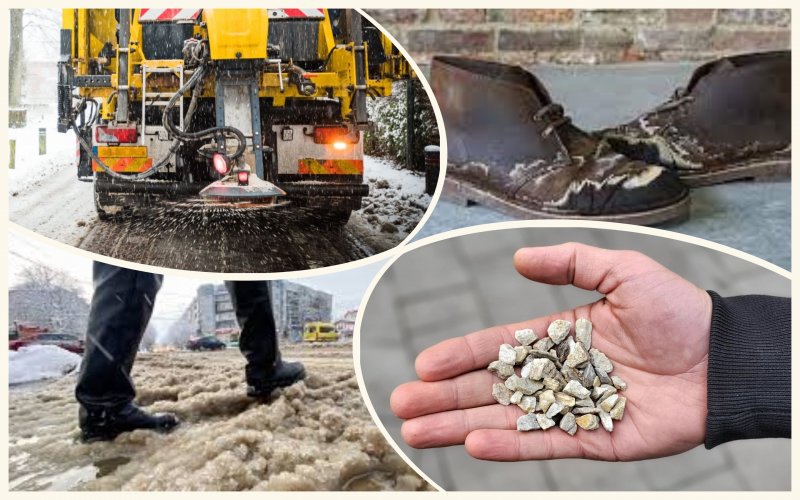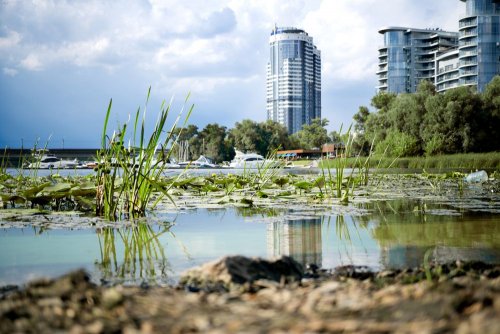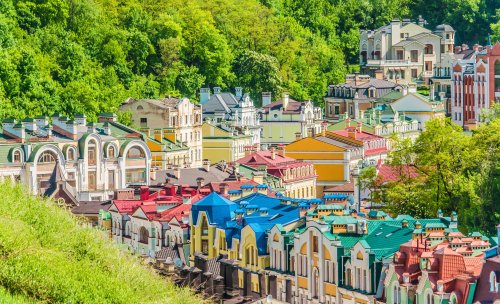In Kyiv, in the winter of 2022-2023, granite chips are used in 50 parks and squares to combat ice.
Despite the fact that granite chips, hot sand and other modern alternative means are widely used in the world, Ukraine is still struggling with the ice of the Soviet salt mixture, Deputy of the Kyiv City Council of the VIII convocation Konstantin Yalovoy wrote on Facebook.
He noted that salt causes significant damage to soils, plants, animals, cars and shoes. Salt is considered a cheap and effective means of dealing with ice. However, now its cost has increased significantly, and it has become more difficult to get the right amount.
Yalovoi said that granite chips are widely used in Finland, Germany and Denmark, because they are safe for the environment.
“This is a truly ecological way that does not harm the environment. Plus, used crumbs can be collected and reused,” he wrote. “In the future, this method will help to significantly save the city budget.”
It is noted that in addition to granite chips, the "Toreygra Vaa" method is used in Scandinavia. To combat ice, fine sand is mixed in a ratio of 7 to 3 with hot water of 90-95 ° C and sprayed on the streets. Sand melts into the snow and makes the surface rough.
Yalovoy said that in the United States and Canada, the natural mineral bischofite or magnesium chloride is used. It does not harm nature, its use is economical, because it creates a more stable effect compared to salt sand mixture. But it is more expensive than analogues. In Norway, Iceland and Japan, heated sidewalks are being built to avoid ice.
He also added that in some European countries, in particular, in the Netherlands and Switzerland, salt is also used. However, this process is very tightly controlled there and natural fertilizer is added to the mixtures. This reduces the harmful impact on nature and prevents the snow from freezing for a long time.
"It is not worth delaying the transition to environmental methods," he added.
Yalovoy also suggested that Kyiv adopt the experience of Lviv, where some alleys are sprinkled with coffee grounds.
“I think it's a great environmental solution. Kievans drink coffee no less, and business has long shown that it is ready to mobilize for the sake of a useful cause. This Lviv know-how was also adopted by individual Polish cities,” Yalovoy emphasized.
He added that although Ukrainian cities are developing environmental means to deal with ice, the initiatives are sporadic and not systematized.
As EcoPolitic reported earlier, eco-friendly and cheap protests in Kyiv in the winter of 2022-2023 granite crumbs for icing in parks and squares.





